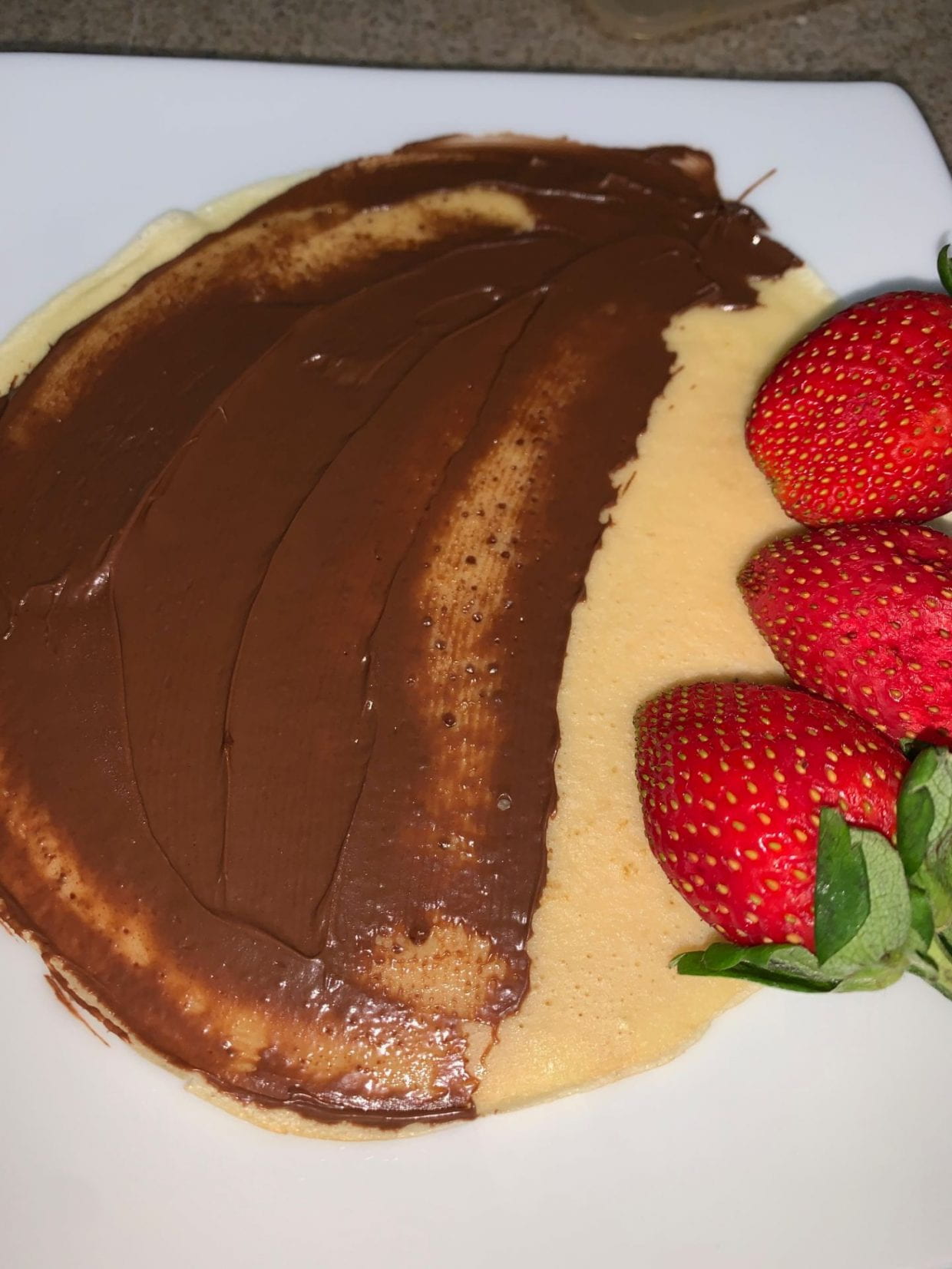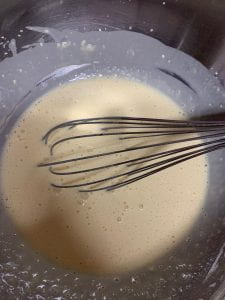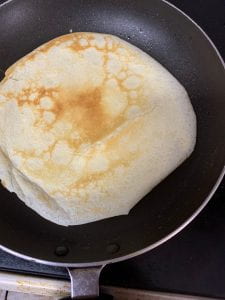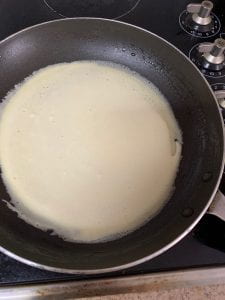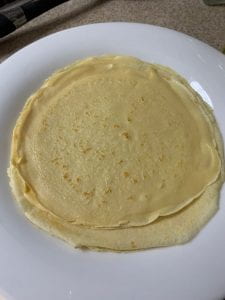Making Crêpes
Today for this CAS block, I decided that I would prepare some crêpes and incorporate the CAS learning outcomes as I did so. Crêpes are a French dish and they are essentially very thin pancakes – they can be savoury or sweet, simple or complex – either way, they are very delicious.
LO3
In order to make sure I am organised and prepared to make the crêpes, I will first have to establish which recipe and what materials I will need. Since I have made crêpes before, I am already familiar with a recipe that yields a well-textured, balanced crêpe. This recipe comes from Byron Talbott, who is a well-known chef that also creates content for YouTube, making at home baking and cooking more accessible, versatile, and simple. In his recipe (the recipe I will be using) he calls for:
- 1 cup All purpose flour
- 1 cup whole milk
- 3 whole eggs
- 2 Tbsp melted butter
- 1 Tbsp sugar
- 1 jar of nutella
This is also the video recipe that fully explains the method in detail, which is useful for me as I am a more visual learner and this helps me get an understanding of the techniques to be used:
In terms of the necessary materials and equipment to make these crêpes I will be using:
- A wooden spoon
- A bowl
- A pan
- A stove
- A set of measuring cups
- A set of measuring spoons
Note: In order to be more considerate of both my waste in this process, as well as my use of electricity, I will be opting to use a wooden spoon instead of an electric hand whisk. This is to save electricity, as well as to save the excess water that would be used to intricately clean all of the components of the electric beaters. This recipe is quite loose and the batter should not be too hard to mix so using electric beaters would be unnecessary overall. Along with this, I will ensure that all waste made in this process is put into the correct bins (food waste, recycling – paper and plastic) to ensure that all the excess waste gets disposed of properly or composted. (LO7)
Also, in regards to planning my time fittingly, this CAS block falls into break time as well so I will be able to have enough time to prepare the crêpes for my family and eat them – all in time for block 2.
LO4
To show commitment to this CAS experience, it was essential for me to go out and follow the plan I had created to prepare these crêpes. I took pictures of my method when making the pancakes, and also noted any challenges faced, and how I overcame them. Through sticking to the plan I listened to, I also was able to see what would work differently along the way for example; any personal changes I could make to the recipe to cater to my taste or how I may have gotten used to making the crêpes throughout the process, and thus improved my technique and skill.
I noticed that if i went ahead and used a wooden spoon, the batter likely would have still had lumps which would effect the final texture of the crêpes, so I decided to switch to a non-electric whisk before preparing the crepes to avoid having to wash more materials – and thus creating more water waste. In doing this, I prevented any irregularities in the final product.
This is the first point where I experience a challenge in this process. I had set the heat on the stove quite high, which yielded an over cooked side to the crêpe. Due to the high heat, the initial crêpes were slightly overdone and were not as evenly cooked throughout. In order to overcome this, I decided to wait for the pan to cool down, then switches the heat to medium. Though this made the crêpes take longer to cook, it allowed them to be more consistent and have even colouring on both sides. (LO1)
Throughout this process, I think that my skill has improved considerably. Since I made such a large batch of batter, I was able to experiment with ratios and get a feel for the right technique to use that would allow me to have the ‘perfect’ crêpe to my taste. It was tricky with the first 3 pancakes as some were thicker whilst others were thin and slightly too crisp. By being able to challenge myself into thinking and experiment with new ratios I was able to discover that for my pan size, a portion of about a 1/4 of batter is perfect to cover the pans surface area and yield an even crêpe. Throughout the process, I also was able to improve my wrist technique and turn the pan well to get a nice rounded shape on every crêpe. I would say this is evident as my first crêpes were more oval-shaped, whereas the most recent ones made replicated the circular shape of my pan accurately. (LO2)
Overall, I am glad that I utilised my time this morning to make and prepare these crêpes. As I mentioned in my CAS goals, cooking and baking really help me cope with any anxiety or stress as well as helps get me off my screen. Doing something hands-on by myself helped me feel productive early in the morning, as well as making breakfast for my family making me feel accomplished in a way. Through this process, I learnt how to adapt my techniques and alter ratios to cater to my materials and equipment. Being able to take the time afterwards to wash the dishes also helped me feel useful and productive. It gave me a quiet moment to be mindful and think/plan my day and tasks in my head which was very helpful as it gave me a sense of reassurance to be able to take the time and really consider all the things I have to do and think about how I can achieve them. Essentially, I enjoyed this use of my time and the end result was very much worth it – for the warm, fresh, and delicious breakfast!
